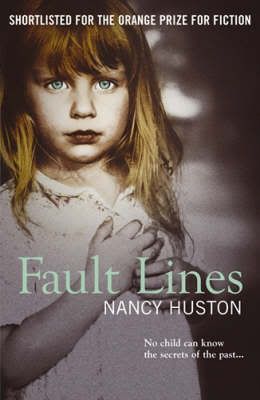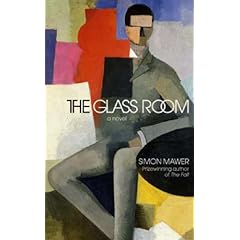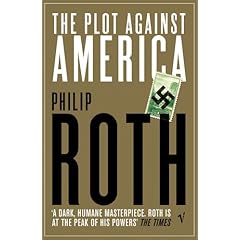
So, you start a book which is meant to result in emotional upheaval, and you keep your distance to begin with, but then the book sucks you in, and you feel your emotions getting the better off you, while the writing itself remains simple and straightforward, with almost no sentimentality. And as you keep turning the pages, you just want the happy ending; the fairy-tale happily ever after. And then the book ends, and you're just sitting there holding it, stunned into disbelief by the response evoked by a book less than two-hundred-and-fifty pages long.
It's Christmas Day, 1943, when Hilary, a poet and an intellectual, learns that his little boy, John, is lost. Lisa, his wife who was involved in the Resistence, was killed in Paris by the Gestapo, but before her death, she had asked a friend to look after her baby, who Hilary had seen but once. But on that fateful Christmas Day, a stranger (a Frenchman named Pierre) knocks on the door of Hillary's English home, informing him that his son has disappeared without a trace, and he would like to help Hillary find the boy.
Post-war, Hillary reluctantly heads to Paris upon Pierre's request, in order to commence the search for the lost boy - a search that has already been initiated by the resourceful Pierre. But Hilary is not prepared for the war-ravaged Paris that greets him.
Yes, it was familiar again - until the bus creaked past the bombed factory, the makeshift bridge, the shattered rusting locomotives, and the English in the bus shamefacedly whispered to each other, "Do you think we did that?" and then wondered if there could still be friendship between the destroyer and destroyed.
Simply, eloquently put.
Hilary starts following the trail which could potentially lead him to the son he lost about two years ago - almost unwillingly - for, with time, he's made himself invulnerable to emotions, and is content to live in his memories. The search leads him to a convent in a small town in France, where a boy who might be his son lives. It's not definite, but the age and blood type match. The hope is that on seeing the boy, Hilary would recognise his son.
Hilary visits the boy (called Jean) in the convent, and starts spending a couple of hours each day with the boy, his affection for the slowly mounting, but the uncertainty as to whether the boy is actually his son not really diminishing. The first meeting is confusing, as at first glance, he thinks that's his son, but on second glance, he stares at the child in horror and repulsion, certain that the child isn't his...
...and thus begins the journey of trying to determine if he's found his little boy...
...But then, Hilary is detached, pragmatic and almost like an icicle at times, that one just wants to physically shake him into finding his human emotions - diametrically polar to some other moments where he buys the child expensive gloves, and gauges his reactions, without the child having to say much, if anything at all.
As the relationship evolves during the course of the week, the child transforms from a shy nervous boy to an excited happy one around Hilary. You can make out that he doesn't want to disappoint Hilary, and when Hilary comes across as impatient, the boy withdraws into himself. There are moments where, as a reader, you just hate Hilary, for how can someone be so heartless?
Hilary said nothing. He stood there watching the child, feeling only hate for the creature who had put him in this predicament, through whose interventions he had made a fool of himself. The little coward, he was saying, the little coward.
Jean whimpered, "I want my red gloves back."
You're finding out you can't buy happiness, thought Hilary coldly. Aloud, he said, "You can't have them back. Once you've given a present, it's a present forever."
Jean stopped whimpering, only stood there shaking and staring. You're finding out what desolation means, thought Hilary savagely [...].
But - but it's the absolute last line of the book that makes it so... touching and heart-rending. Just the last line. Honestly, words cannot describe the impact they make.
While the heart of the book is about the father looking for his lost son, Laski pays attention to the rampant corruption existing in Paris at the time, and the black market, which emphasised the difference between the haves and the have-nots, and the whole "survival of the fittest" philosophy. She also highlights the slight disconnect between the locals, as they attempt to determine on which side their counterparts stood during the Occupation.
"But at least the Occupation showed each man what he was capable of. Don't you think it was something to be able to find out?"
"No, why?" said Pierre. "Some found they were better than they thought, some worse. We are finding that out all the time in our everyday lives."
"But we're not conscious of it all the time," argued Hilary. For some reason, this point seemed of vital importance to him. "Surely occupation or battle or something like that brings the whole thing to an inescapable point - a sort of judgment by ordeal?"
If you haven't yet, please do read this book.
I've read two books by Laski so far, and have two more to go (which have been printed by Persephone) - her writing is amazing, and I can't wait to read the others.

 The Amazing Adventures of Kavalier and Clay is well - amazing. Not only does this book celebrate the "great, mad, new American art form" and pays a tribute to the spirit of Americana in the 1930s, it simultaneously depicts the despair in Europe during the second World War, and how incredibly disconcerting the war was - both, for the people who had to live it, as well as the people who managed to escape it.
Eighteen year old Josef Kavalier flees Prague in the golem's coffin, leaving his family behind, and ends up in Brooklyn, New York, where he's forced to bunk with his seventeen year old cousin, Samuel Klayman (Clay). The cousins, both aspiring artists, hit it off immediately, and Clay introduces Kavalier to the wonderful world of comic books - in an age where Superman has just hit the stands, where the comic book obsession is rampant, and where there's big bucks to be made, the cousins decide to create their very own super-hero to rake in the money.
The Amazing Adventures of Kavalier and Clay is well - amazing. Not only does this book celebrate the "great, mad, new American art form" and pays a tribute to the spirit of Americana in the 1930s, it simultaneously depicts the despair in Europe during the second World War, and how incredibly disconcerting the war was - both, for the people who had to live it, as well as the people who managed to escape it.
Eighteen year old Josef Kavalier flees Prague in the golem's coffin, leaving his family behind, and ends up in Brooklyn, New York, where he's forced to bunk with his seventeen year old cousin, Samuel Klayman (Clay). The cousins, both aspiring artists, hit it off immediately, and Clay introduces Kavalier to the wonderful world of comic books - in an age where Superman has just hit the stands, where the comic book obsession is rampant, and where there's big bucks to be made, the cousins decide to create their very own super-hero to rake in the money. I've been meaning to read a Laski for a long time, and I finally picked this book out of my shelf, just to help me return to the world of reading - one of my many loves that I've been ignoring recently. And on finishing it, I was gently reminded as to why I love reading so much.
I've spent the past couple of months literally obsessing over things, and trying to make a life-changing decision (career-wise). However, while reading (and on finishing) this book, I almost immediately started focusing on the points it raises and the questionable character of this book's protagonist. Annoyingly, I can't seem to make my mind up about where I stand.
I've been meaning to read a Laski for a long time, and I finally picked this book out of my shelf, just to help me return to the world of reading - one of my many loves that I've been ignoring recently. And on finishing it, I was gently reminded as to why I love reading so much.
I've spent the past couple of months literally obsessing over things, and trying to make a life-changing decision (career-wise). However, while reading (and on finishing) this book, I almost immediately started focusing on the points it raises and the questionable character of this book's protagonist. Annoyingly, I can't seem to make my mind up about where I stand. I bought this book back in January, simply because the blurb likened it to
I bought this book back in January, simply because the blurb likened it to 
 It's the third book I've read this year, where the narrative goes chronologically backwards - the difference being, this time, it follows four generations of six year olds, starting in 2004 and ending in 1944-45.
Sol, a six year old in 2004, believes the world revolves around him, and that he's a genius. Brought up in a pro-Bush environment (Jesus wept), he seems to have a perverse side, as he browses the internet for pictures from the war in Iraq - dead soldiers, raped women, and, there's a reference to the Nick Berg execution as well. This section of the book, to me, highlighted how children today are becoming less innocent and more worldly than back when I was six! Google seems to be playing a massive role in that! To be honest, he almost reminded me of Stewie from Family Guy.
It's the third book I've read this year, where the narrative goes chronologically backwards - the difference being, this time, it follows four generations of six year olds, starting in 2004 and ending in 1944-45.
Sol, a six year old in 2004, believes the world revolves around him, and that he's a genius. Brought up in a pro-Bush environment (Jesus wept), he seems to have a perverse side, as he browses the internet for pictures from the war in Iraq - dead soldiers, raped women, and, there's a reference to the Nick Berg execution as well. This section of the book, to me, highlighted how children today are becoming less innocent and more worldly than back when I was six! Google seems to be playing a massive role in that! To be honest, he almost reminded me of Stewie from Family Guy. Sarah Waters' The Night Watch is the third novel I've read by her, and it's as different as the previous two as it can be. While one was a gothic ghost story set in Warwickshire (
Sarah Waters' The Night Watch is the third novel I've read by her, and it's as different as the previous two as it can be. While one was a gothic ghost story set in Warwickshire (



 This incredibly poignant well written story tackles various important and sensitive topics, some of which are still valid today, despite the book being set around the time of the second World War.
This incredibly poignant well written story tackles various important and sensitive topics, some of which are still valid today, despite the book being set around the time of the second World War. This is another one of my reviews that have been pending for over a month. While I'm reading the super-chunky Midnight's Children, I thought it's a good time to get up-to-date with some of the reviews which really should have been written earlier.
This is another one of my reviews that have been pending for over a month. While I'm reading the super-chunky Midnight's Children, I thought it's a good time to get up-to-date with some of the reviews which really should have been written earlier. This review has been outstanding for about a month and a half, and for that I apologize. I read it back when I was working towards a big deadline, and I just didn't find time to review it back then. But here it is, now...
This review has been outstanding for about a month and a half, and for that I apologize. I read it back when I was working towards a big deadline, and I just didn't find time to review it back then. But here it is, now...
